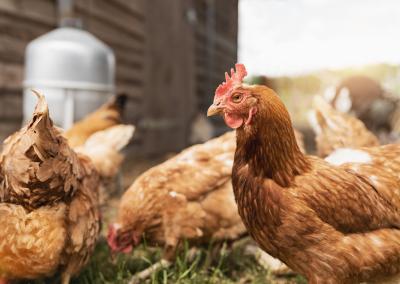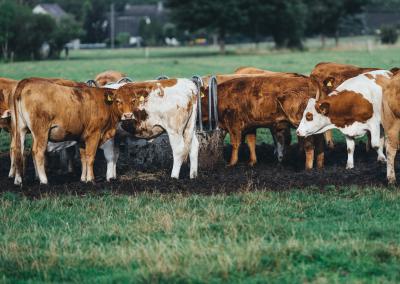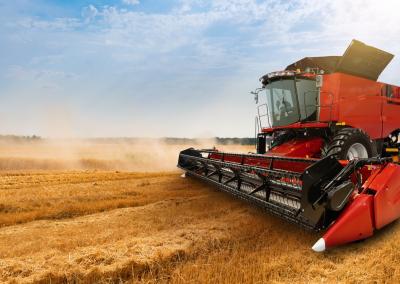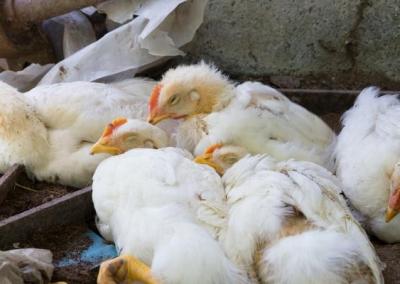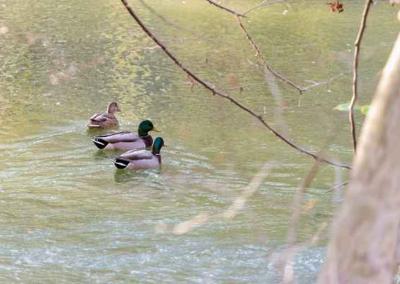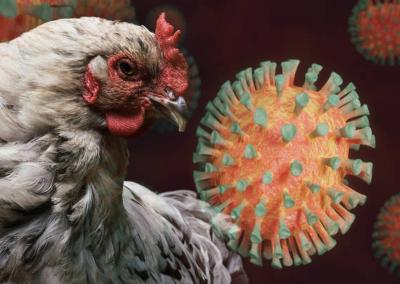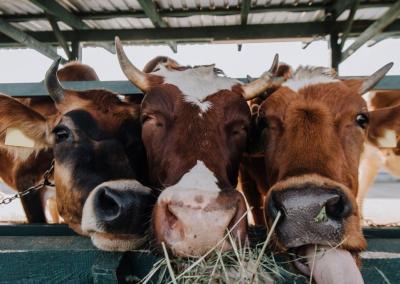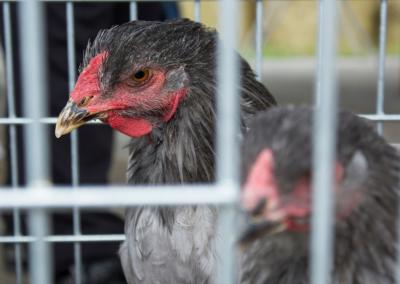Avian influenza back in Lithuania - outbreak detected in Kaisiadorys district
An outbreak of bird flu has been recorded in a poultry holding in the Kaisiadorys district. The virus was confirmed in the village of Bačkoniai after a farmer reported apathetic, immobile, non-running and dying hens.
The National Institute for Food and Veterinary Risk Assessment has today, 27 May, confirmed the presence of the avian influenza virus in the dead hens. On the day of the suspicion, inspectors from the State Food and Veterinary Service (SVVT) arrived on the scene and found a total of 70 laying hens, 9 geese, 35 goslings and 2 ducks.
„When we arrived at the farm, we saw that the hens were kept in confinement and the other birds were separated. However, there are even three open water bodies on the territory, and we saw wild ducks rising on the shore of one of them. The farmer feeds the waterfowl regularly by putting feed near a fenced pond, but wild birds often come and eat the excess feed. We believe that the transmission of the infection may have been caused by the farmer's movement around the area from one bird house to another, feeding the birds. In this way, the infection could have been easily transmitted through clothing, household items or un-disinfected footwear. It is also known that the farmer had already noticed the unusual mortality, but delayed reporting and only informed the VMVT after noticing the high mortality. We constantly remind farmers that it is better to check suspicions several times than to delay and let the disease spread. Therefore, we urge you once again to "do not delay, and if you notice any apathy in poultry, any change in the behaviour of birds or any mortality, please report it immediately to veterinary specialists", commented Vilija Grigaliūnienė, Chief State Veterinarian of the Surveillance Department of the VMVT.
Strict measures are being taken
The farm is being staffed by VVM inspectors – the disease outbreak is being isolated and eradicated. All birds have been safely culled and disposed of, feed and eggs have been buried on site and the holding area, transport and equipment are being thoroughly disinfected.
The owner of the holding cooperates with the HPAI and all the requirements necessary to neutralise the outbreak of avian influenza and to prevent further spread of the virus are strictly followed.
Around the farm, 3 km protection and 10 km surveillance zones have been established. An epizootic investigation and a risk assessment for additional containment measures will be carried out today and tomorrow.
Virus detected in wild birds this year
The avian influenza virus was also detected in the wild in April this year – it was confirmed in swans in Kaunas, on the banks of the Neris River. The risk of the virus spreading and entering poultry housing remains relevant throughout Lithuania.
The MoIHCP urges people to avoid visiting wild bird roosting sites, especially near water bodies, as the virus can be transmitted to farms or to poultry and other animals through carelessness.
The risk of virus transmission is also increased by active trade
Now that there is still active outdoor trade in chickens, ducklings, turkeys and other poultry chicks, the risk of virus spread is increased. Infected birds can be moved from one place to another, and chicks are particularly susceptible to infection.
Bird farms and other commercial outlets where birds from different farms are brought together in a single location create favourable conditions for the rapid spread of the virus. Therefore, the VMVT urges traders to regularly check and monitor the health of their birds. Farmers and poultry breeders should take extra care when purchasing new birds and strictly comply with biosecurity requirements.
Natural birds should only be purchased from approved breeding sites. Only persons and poultry farms with the necessary permits are allowed to trade in live birds.
Major biosecurity requirements for poultry farmers:
- Keeping birds indoors or in enclosures;
- Protect feed and poultry from wild birds, rodents and other animals;
- Not to use open water bodies for watering birds;
- Keep geese and ducks separate from other bird species;
- Disinfect vehicles and limit access of unauthorised persons to the farm area.
In case of bird health problems or dead poultry or wild birds, inform the VMVT as soon as possible by calling 1879 or +370 5 242 0108, or by filling in the questionnaire on the VMVT website. :

